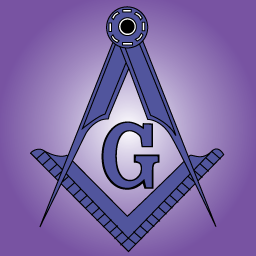Get Today in Masonic History into your Inbox. Sign up today for one of our email lists!
Need an article for your Trestleboard/Newsletter see our Use Policy
Freemasonry and Religion

Today in Masonic History we discuss Freemasonry and Religion.
Freemasonry is not a religion.
Once Speculative Freemasonry began being practiced, it came to the attention of organized religions who viewed it as negative. There are a variety of reasons cited for the negative reaction and why they are opposed to the Masonic Fraternity. Often the reasons are based on information already debunked. Regardless of the information put forward to explain or persuade others the negative reasoning is untrue, the false information is held in an almost dogmatic way by some.
Most commonly claimed, particularly by Christian religions opposed to Freemasonry, is Masons are not Christian. In a sense this is true, there are people of many different faiths who are part of Freemasonry around the world. Within the United States the vast majority of Freemasons are Christian, this is because Christianity is the predominant religion in the United States. In Turkey it is most likely Islam, in Israel most likely Judaism, the list goes on and on. Because of the multi-religious nature of its membership Freemasonry has chosen words to refer to Deity which are not based in any one religion. Grand Architect of the Universe (GATU), is a very common phrase used in Masonic lodges and ritual. It is a phrase which allows the individual to look into their faith and soul to determine their own beliefs. It also allows for the most important aspect of Freemasonry to take place, meeting on the level. When we are able to see past religious differences in our lodge rooms we are able to accomplish more with those around us and treat each other as equals, which is what "meeting on the level" means to a Freemason.
The phrase "Grand Architect of the Universe" also helps to get Freemasonry in trouble again with religious groups. There is confusion both outside and inside of the fraternity as to why this phrase is used. As was previously stated it is something meant to bring members together, recognizing every individuals right to their own faith and their own way of expressing it. Faith is an important word when it comes to Freemasonry. Within the body of Freemasonry all who enter our doors are individuals of faith. This is not meant by the definition which classifies faith as a religion. It defines the more "generic" idea of faith, a belief in something unseen and intangible, yet we are confident it is there and we can trust in it. The ceremonies, ritual and methods of how faith is expressed is left to the individual Freemason to decide for themselves. Knowing the individual entering Freemasonry has faith is enough for the fraternity.
The idea faith is up to the individual may be where Freemasonry, particularly in the early days of speculative Freemasonry, came into conflict with religions of the time and perhaps still does. Speculative Freemasonry came into being largely in the years leading up to and through the Enlightenment. Freemasonry allows the individual to explore faith on their own, there is no push in one direction or another. In fact discussion of religion, just like politics, is forbidden in a Masonic lodge. It is not to be a forum to try and convince a captive audience why they should or should not believe in one cause or another, or one religion or another. During the Enlightenment individuals started looking for answers to questions outside of religion, Freemasonry was the embodiment of this principle with many of it's members being Enlightenment thinkers.
Regardless of the reason or reasons behind it, some religions and Freemasonry have clashed through out history. Regardless of those clashes Freemasonry has at it's core the belief of equality to all and respect of the beliefs of the individual.

